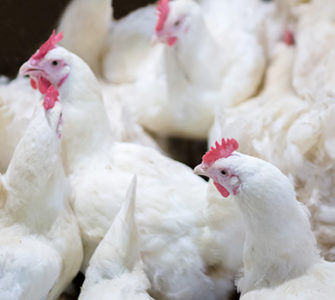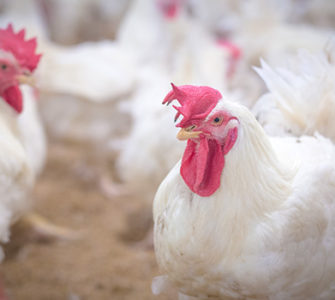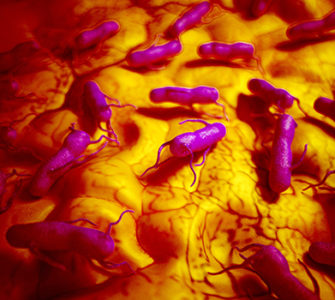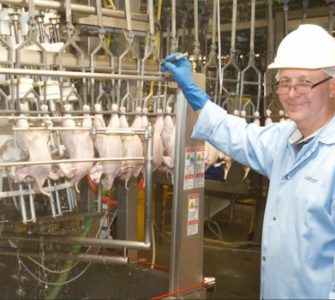Turkey-farm study finds Salmonella Infantis prevalent
Research studying Salmonella across one turkey producer’s farms found Salmonella Infantis to be by far the dominant serotype — recorded in over a quarter of positive results.
The 3-year study, which involved taking swabs from protective shoe coverings on facilities 14 days before birds were processed, analyzed a total of 1,606 samples.
In broiler (chicken) production Salmonella Enteritidis and Salmonella Kentucky are seen quite frequently, “but those were pretty far down our list for this turkey operation,” said Cameron Ellington, who led the work at North Carolina State University. Typically, Enteritidis and Kentucky are more of a problem in chickens, compared to turkeys.
She said researchers also found Salmonella Senftenberg, Albany and Schwarzengrund on the farm.
Salmonella Infantis is part of the C1 serogroup, and while the group was dominant over the 3-year study, it tailed off toward the end. As for why, that is “something we’re still figuring out,” she said, though the focus is on inter-flock and litter management, as well as other possible factors.
Farm age influencing pathogen prevalence
The age of a farm seemed to impact the number of positive samples collected.
The issues may be more manageable on the newer farms where they can be corrected more quickly, whereas issues on the older farms might not warrant fixing because of a building’s age, she explained.
Teasing out other influential factors necessary
More positive samples were recorded in the second half of the study, where the company was producing more no-antibiotics-ever (NAE) birds. However, the team was unable to determine if this was simply a conventional versus NAE issue or a matter of location.
For further work, Ellington and her team plan to explore when Salmonella cases are arising in birds’ lives. They are considering going back and looking to see if the diseases might be originating when the birds are younger.
The team also hopes to collect more data to determine the importance of geography as a factor in infection, as well as the impact of feed truck movements, mortality disposal and litter management.
With reduced products available to treat poultry disease, there needs to be a focus on biosecurity and bird management, Ellington stressed.
“I think there needs to be more of an emphasis on figuring out what’s going on while the birds are still alive and coming up with better techniques to combat that so when we do send those birds to the plant, their levels of Salmonella are lower than what we’re sending now,” she added.
Posted on April 19, 2022

















